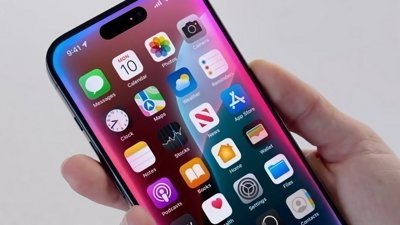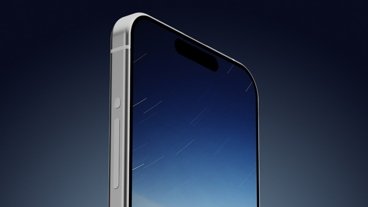An annual proxy filing to the SEC by Microsoft revealed that the company's Compensation Committee viewed Ballmer's performance as mixed. Of a bonus worth up to 200 percent of his base salary, Ballmer was awarded his "target bonus" of 100 percent, resulting in annual compensation of $1.34 million. Ballmer's fiscal year 2010 salary was higher than last year, but lower than that of 2008.
Despite the Redmond, Wash., company posting a record $62.5 billion in revenue for fiscal year 2010, which ended on June 30, Ballmer was taken to task for "the unsuccessful launch of the Kin phone; loss of market share in the company's mobile phone business; and the need for the company to pursue innovations to take advantage of new form factors."
Although not specifically mentioned, it's clear that the committee compared Ballmer's performance in the mobile space to Apple CEO Steve Jobs' recent successes. Microsoft took several hits this past year with the early demise of the Kin and significant drops in Windows Mobile market share, while high demand for Apple's iPhone continued to generate substantial profits for the Cupertino, Calif., company.
A Reuters report interprets the Compensation Committee's comments about innovative "form factors" as a reference to the iPad and the tablet market. Millions of iPads have been sold while competitors have scrambled to finish their own tablets. Rumors of a Microsoft tablet being developed under the codename "Courier" were eventually put to rest after a Microsoft VP admitted that the company had "no plans to build such a device at this time." Microsoft and HP announced early this year that they were collaborating on a "slate PC," but HP's purchase of Palm this spring may have disrupted the project.
Shortly after acquiring Palm, HP revealed that it was most interested in WebOS. The company plans to use the OS to power "small form factor web-connected devices."
Undaunted by last year's losses in mobile market share, Microsoft remains confident that the upcoming launch of Windows Phone 7 will turn things around. After Windows Phone 7 was released to manufacturing, Microsoft employees celebrated by holding an awkward funeral parade for the iPhone with signs bragging that the "Windows Phone 7 OS Platform buries the competition."
The Wall Street Journal reported Thursday that Microsoft plans to unveil the Windows Phone 7 smartphone launch lineup on Oct. 11. AT&T, which will be the "initial exclusive carrier" for Windows Phone 7, plans to begin selling the smartphones in early November, sources told the Journal. Three handsets, one each from Samsung, LG, and HTC, are expected to be offered.
Some analysts are skeptical of Microsoft's ability to reverse the downward trend. Gartner predicts that Windows Phone market share will jump from 4.7 percent this year to 5.2 percent in 2011, then slide to just 3.9 percent market share in 2014.
 Josh Ong
Josh Ong



-xl-m.jpg)


-m.jpg)






 Malcolm Owen
Malcolm Owen
 William Gallagher
William Gallagher

 Amber Neely
Amber Neely
 Andrew Orr
Andrew Orr










72 Comments
And why did he he get the other half for? The 345 groundbreaking kids phones sold?
Ballmer has been known to pick the winners.
Oh wait...
When it should have cost him his job.
Why the hell is this joker still running the show?
The Compensation Committee failed to credit Ballmer for mockingly stomping on employees' iPhones or throwing chairs in conference rooms. It's a sound strategy for gaining marketshare
And why did he he get the other half for? The 345 groundbreaking kids phones sold?
Didn't I read on AI that Microsoft believed they could sell 30 million Windows phones by the end of 2011? Am I remembering this wrong?